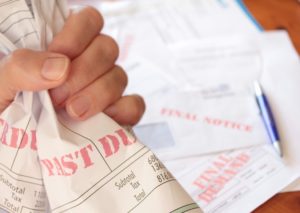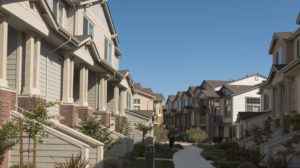 Goldman & Pease advises its Massachusetts clients, particularly condominium associations, boards, and property managers, to pay close attention to a new emergency regulation from the Massachusetts Attorney General’s Office that directly prohibits a condominium association from initiating or threatening to initiate a lawsuit if a unit owner fails to pay condominium common area fees, assessments, fines and/or dues.
Goldman & Pease advises its Massachusetts clients, particularly condominium associations, boards, and property managers, to pay close attention to a new emergency regulation from the Massachusetts Attorney General’s Office that directly prohibits a condominium association from initiating or threatening to initiate a lawsuit if a unit owner fails to pay condominium common area fees, assessments, fines and/or dues.
The March 27, 2020 Emergency Addendum to the Attorney General’s Regulations (“Regulation”), “Unfair and Deceptive Debt Collection Practices During the State of Emergency caused by COVID-19”, prohibits creditors or debt collectors from “initiat[ing], fil[ing], or threaten[ing] to file any new collection lawsuit” and defines a collection lawsuit as “any legal proceeding, including civil actions, commenced in any court for the purpose of collecting any debt owed.” The Regulation further prohibits creditors or debt collectors from initiating or threatening to initiate “or act upon any legal or equitable remedy for the seizure [or] attachment …. of…property… for the payment of a debt to a creditor.” See Regulation, 940 CMR 35:00.
Our analysis of the Regulation, as it pertains to condominium and homeowner’s associations, concludes that while the Regulation remains effective:
- New lawsuits[1] may not be filed with Massachusetts’ courts for the purpose of collecting any unpaid common expenses;
- Condominium and homeowners’ associations, or their managers, may not communicate with unit owners for the purpose of threatening legal action for collection or lien enforcement;
- Monthly invoices for common expense assessments due in the future may be sent in the normal course of business, as long as those invoices do not include language alluding to or implying possible collections actions – such as “delinquent” “past due” or “second notice” or “last notice.”
- We strongly encourage property managers to continue the practice of turning over accounts which are 90 days past due so that we may review appropriate steps, if any, consistent with the Attorney General’s Regulation.
Associations and Boards may continue to:
- Make efforts to maintain the status quo of pre-existing liens relative to the first mortgagee;
- Enter into payment plans or arrangements with unit owners, provided that no actions that violate the Regulation prompted the payment arrangements (i.e., the payment plan was not the result of collection efforts or threats made when the Regulation was in effect).
 This Regulation is sweeping and turns the otherwise lawful attempt to secure unpaid condominium fees into an unfair and deceptive trade practice. From our perspective, the unfair consequences of these Regulations is that condominium neighbors are legally obliged to carry the common area expenses for owners who cannot pay.
This Regulation is sweeping and turns the otherwise lawful attempt to secure unpaid condominium fees into an unfair and deceptive trade practice. From our perspective, the unfair consequences of these Regulations is that condominium neighbors are legally obliged to carry the common area expenses for owners who cannot pay.
Where this Emergency is affecting everyone, this unfair situation calls for clarification. Goldman & Pease is working in concert with others in the legal community to urge the AG’s office to exclude condominium associations from this Regulation. Clients should fully comply with the Regulation’s prohibitions unless and until the Regulation is explicitly modified or deemed unenforceable. Failure to comply with 940 CMR 35:00 may subject a creditor or debt collector to the punitive remedies of the Massachusetts Consumer Protection Act, M.G.L. c. 93A, including double or treble damages for willful or knowing violations, as well as attorney’s fees.
The Regulation will remain in effect until June 26, 2020 or the lifting of the Commonwealth’s State of Emergency, whichever date comes first. A copy of the Regulation can be found at: https://www.mass.gov/doc/ma-reg/download.
Goldman & Pease will continue to take all such actions as are reasonably available and consistent with the Attorney General’s Regulations on behalf of our clients including efforts to preserve the status quo and/or perfect an association’s lien relative to any first mortgagees. Such actions will be taken to ensure that after this crisis has passed, an association’s priority lien will not have been extinguished by the passage of time or supplanted by the claims of a foreclosing lender, thereby ensuring that an association will have the foundation it needs to negotiate reasonable arrangements with unit owners and first mortgagees for eventual payment of outstanding fees, dues and fines.
* * *
Goldman & Pease LLC is a full-service civil litigation practice concentrating in the areas of real estate, development, condominium management, and finance. For over thirty-five years the firm has regularly represented leading property managers, lending institutions, developers, and contractors in Boston, MetroWest and beyond.
1] Notably, the Regulation does not appear to pertain to commercial units and it is our position that commercial units are exempted from the Regulation.
[2] The real estate legal community is currently debating whether this Regulation prohibits the continued prosecution of condominium assessment collections actions underway prior to the Emergency.

